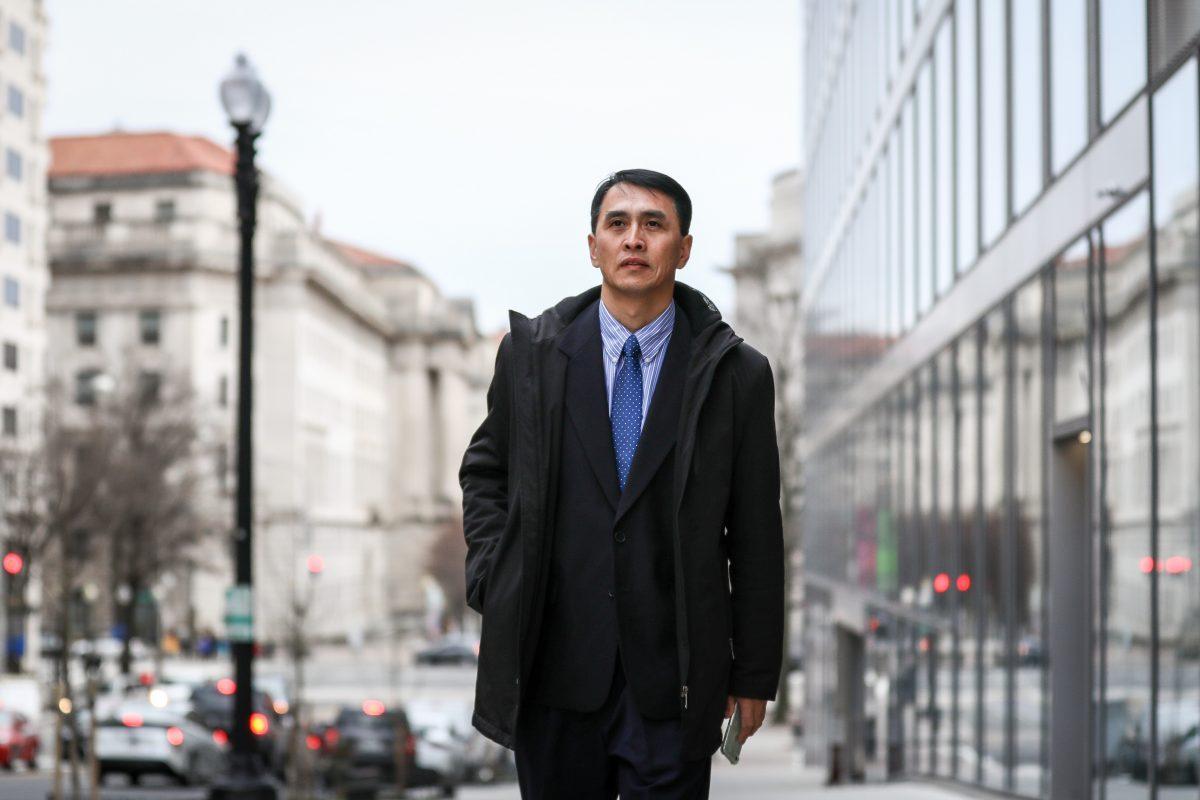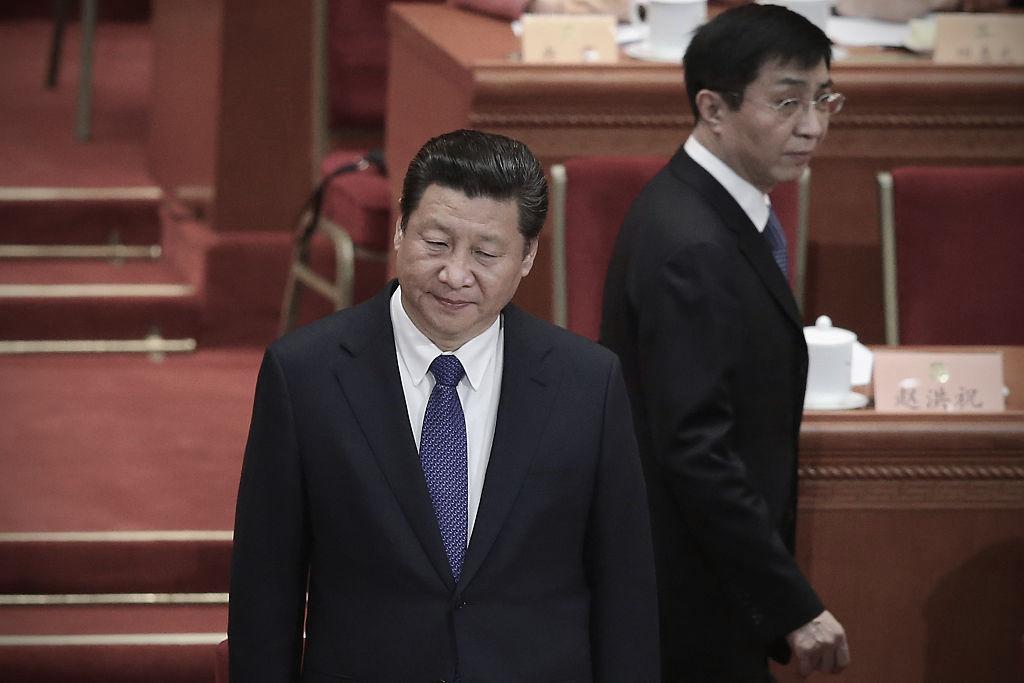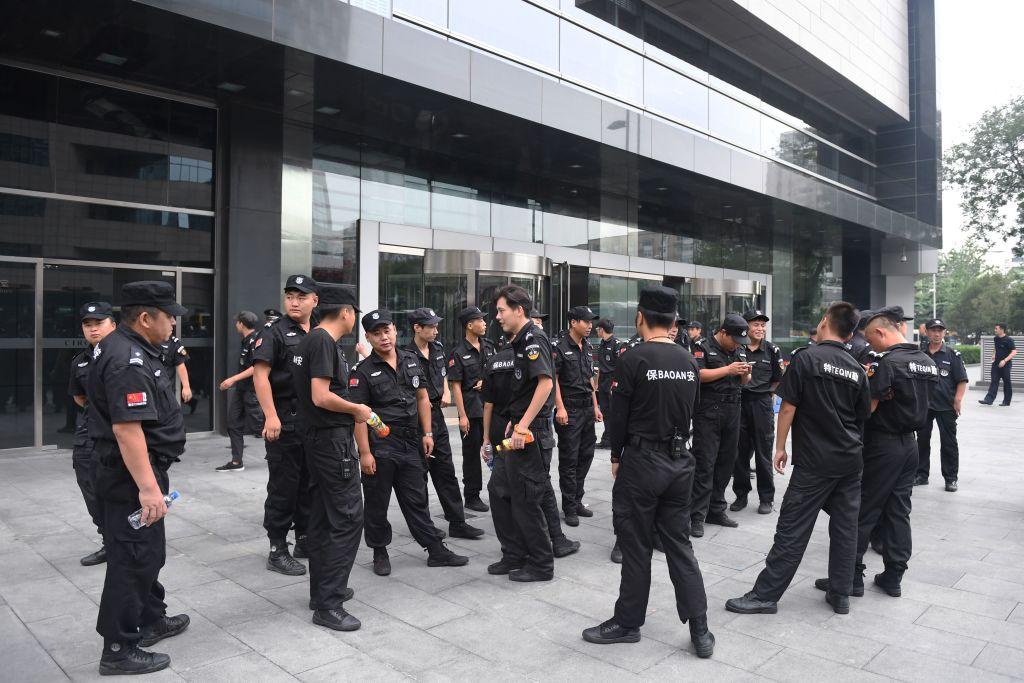After facing years of injustice in his home country of China, successful businessman Yu Ming wants to share with the world what he’s seen, from his new viewpoint in the United States.
To expose the torture that was part of China’s preparations for the Olympic Games, he orchestrated an escape attempt from a labor camp that sounds like something right out of a Hollywood film. He wrote articles about how prisoners were used to help publish pirated books, stealing the author’s intellectual property, and worked with China’s fledgling human rights lawyers to appeal through China’s courts for redress.
Now, having fled to the United States, he can tell his story.
He had been shocked by high-voltage electric batons. For three months, he was locked inside a special iron cage, in which he could neither stand nor sleep. Once, he was dragged down stairs face-down, his head knocking bitterly on each of the steps.
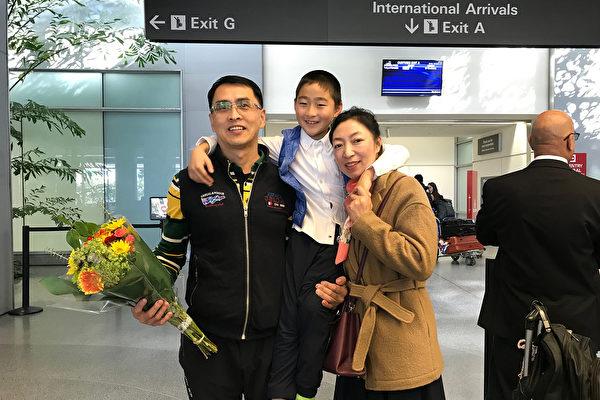
At that time, Yu was already a successful entrepreneur in Shenyang City, the capital of Liaoning Province in northeast China. His fashion business would later hire more than 100 employees and provide jobs to another 1,000 workers at six state-owned suppliers.
Both his customer and his wife thought he wasn’t the type of person who would be interested in a spiritual practice, so they didn’t show him the book. However, the more they wanted to “hide” the book from him, the more Yu wanted to find out what it was about.
So he grabbed the book from his wife and finished reading six of the book’s nine lectures in one night. The next morning, he began searching for a Falun Gong practice site in the park, where he could learn the practice’s exercises.
Falun Gong, also known as Falun Dafa, consists of five meditative, slow-motion exercises and teachings based on the principles of truthfulness, compassion, and tolerance. Its adherents have reported often extraordinary improvements in health, along with less stress, better relations with family and colleagues, and a better sense of the purpose of their lives.
In 1992, Li Hongzhi began teaching Falun Gong publicly—previously this ancient practice had only been passed down from one master to one disciple—and it immediately began spreading throughout China by word of mouth.
By 1999, Western media were reporting that 100 million people in China had taken up the practice. China’s leader at the time, Jiang Zemin, became wary of the large number of people who had begun doing something outside the control of the Chinese Communist Party (CCP), and feared the Chinese people might find its traditional moral teachings more attractive than communist ideology, which is based on materialism, atheism, and class struggle.
A Successful but Failed Escape
With the approach of the Beijing Olympics, Yu saw from his hospital bed that more and more people were arriving at the Masanjia labor camp, having been sentenced for “planning to commit robbery” or “preparing to steal.”Inside the camp, the torture and terror were accelerating to “transform” the Falun Gong practitioners—forcing them to renounce their beliefs, identify others who practiced Falun Gong, and profess loyalty to the Communist Party.
Yu couldn’t bear to see more innocent people tortured so terribly. Plus, he believed that the outside world should know what was happening in China after Beijing was granted the right to host the Olympics. Instead of improving its human rights as expected by the international community, the communist regime was persecuting and even killing people because of the Olympics.
Yu decided to expose that.
But how? He had an idea.
According to his plan, two fellow Falun Gong practitioners would escape from the camp, and try to get in touch with foreign journalists who were in Beijing to cover the Olympics, hoping the situation in the camp could draw some attention.
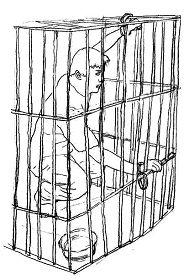
As many labor camp inmates would often be sent to the hospital and then taken back to the camp, through painstaking communications and complicated calculations, Yu was able to coordinate the escape.
He found people on the outside to come to the two escapees’ aid after they fled the camp, and he found another person to rent a place for them to hide while the police would be searching frantically for them.
And there was another thing to consider: After the two practitioners escaped, the on-duty police guards and 22 fellow inmates from the same cell would definitely be implicated and severely punished.
As somebody who followed the teachings of truthfulness, compassion, and tolerance, Yu didn’t want that to happen. He wanted to treat these innocent bystanders with compassion.
So he managed to scrape together some sleeping pills. He told the doctor that he couldn’t sleep. He pretended to swallow the pills in front of the nurse, but, in fact, hid them in his other hand.
With this method, he saved—bit by bit—enough pills to put all the guards and inmates in his cell to sleep on the day of the escape. If they were asleep when the escape happened, they wouldn’t be held responsible for not preventing it.
The plan was put into action on Aug. 11, 2008. The iron bars in a window of the cell were cut and broken, and the two practitioners slithered down from the third floor using a rope made from a quilt.
Initially, everything went smoothly. They were picked up at the right time and right place by the right people, until ... the person who was meant to rent the place for them to stay didn’t show up. Nobody knew what had gone wrong. Yu had to arrange to have his wife, Ma Li, pick up the two escapees and hide them at his home, knowing very well how risky that was.
Three days later, hundreds of policemen, some armed with guns, surrounded the area near Yu’s home, and took away the two escapees, as well as Ma.
The escape attempt during the Beijing Olympics from the “model” labor camp infuriated the highest leaders of the communist regime. The escape was classified as a “major incident”; at least seven police officers were fired, and two deputy directors of the camp were punished.
Yu and the two escapees were tortured ferociously.
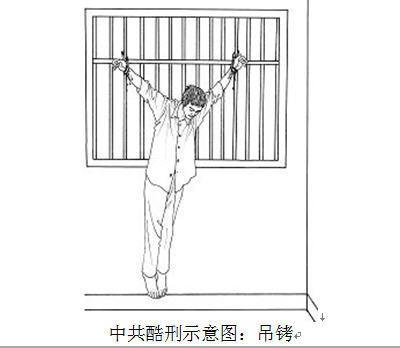
Yu was hung to a door, with his arms stretched up, and his feet hardly touching the ground. He was hung in this position for over a month, day and night. Sometimes, he could be released when he needed to relieve himself; sometimes, the police wouldn’t release him. So he took as little as possible of the food or water that was pushed into his mouth.
He nearly died.
The other two were tortured more viciously, Yu said. The labor camp was given a two-death quota after the escape try, which meant that two persons could be tortured to death without repercussions.
In addition to being tortured nearly to death, each of the three people involved was given another year at the camp. Sadly for Yu, if he hadn’t planned the escape, he could have been released in about 20 days.
Asked whether the attempt was worthwhile, especially given that it didn’t succeed, Yu replied without hesitation: “Yes, it was. We had to do it. More than 10 fellow Falun Gong practitioners around me had already been tortured to death during the persecution.
Pirated ‘Harry Potter’ Books
China’s labor camps exist to force prisoners of conscience to betray their beliefs, but they are also money-making enterprises. They are a source of cost-free labor.Yu remembers how he and many others were forced to make pirated copies of the “Harry Potter” books in the labor camp.
“That was toward the end of 2001, shortly after China joined the World Trade Organization. I was detained at the Beijing Tuanhe Forced Labor Camp. We were forced to cut, fold, sort, and bind the sheets of ‘Harry Potter’ and other books, in both English and Chinese, as well as several other languages. The books were printed somewhere else. After we finished binding them, they were then taken away.”
Yu and the rest of the inmates in Brigade 6 worked for more than three months on the books.
Yu remembers piles of printed sheets about three feet high could be seen everywhere in the halls and corridors of the floor of Brigade 6. Brigades 3 and 5 were working on the books as well.
“The whole enterprise had a dreary feel to it. People delivered the printed sheets to the forced labor camp furtively, and the vehicles used to carry the sheets looked pretty worn out. The print quality was extremely poor: The paper looked yellowish and had misprints and marks everywhere.”
In order to get more books ready before the Chinese New Year for sale to students during the winter holidays, the police forced detainees to work long hours—sometimes all night—without any pay.
Yu guessed that they could have made hundreds of thousands of those pirated copies in those few months.
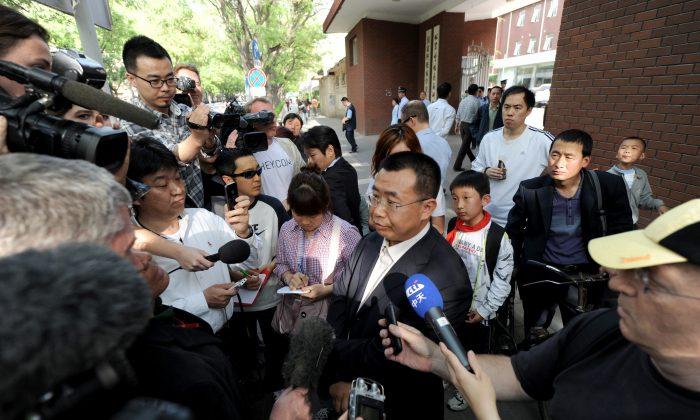
Yu Freed, Lawyers Jailed
In 2009, after being released for the third time, Yu began working with lawyers who later gained notoriety as leading figures among China’s rights activists, to try to defend jailed Falun Gong practitioners. Among them were Wang Quanzhang, Wang Yu, Dong Qianyong, Jiang Tianyong, and others.On Aug. 29, 2013, while attending his nephew’s wedding, Yu was arrested for a fourth time, along with more than a dozen other Falun Gong practitioners in Shenyang City.
CCP leader Xi Jinping was to visit the city the following day, and Yu and the other practitioners were arrested as a “precaution,” to prevent any protests or appeals during Xi’s visit. He was sentenced to four years, despite the efforts of several lawyers who used to work with him who then took on his case, too.
His lawyers, Wang Quanzhang, Wang Yu, and Dong Qianyong, were all arrested in the infamous crackdown on July 9, 2015, in which more than 200 lawyers and human rights activists were arrested.
Yu was released from jail in 2017, and at the end of 2018, he managed to escape to Thailand, where he was able to obtain a visa to the United States; his wife had already gained refugee status from the U.S. government.
On Jan. 27, after nearly 12 years in labor camps and jails, Yu finally joined his wife, daughter, and son in San Francisco.
However, on the same day that Yu gained his freedom, his lawyer Wang Quanzhang—who was secretly detained for more than three years—was sentenced to four and a half years in prison. Yu Wensheng, a lawyer who defended Wang Quanzhang, is himself currently detained at Xuzhou Detention Center.
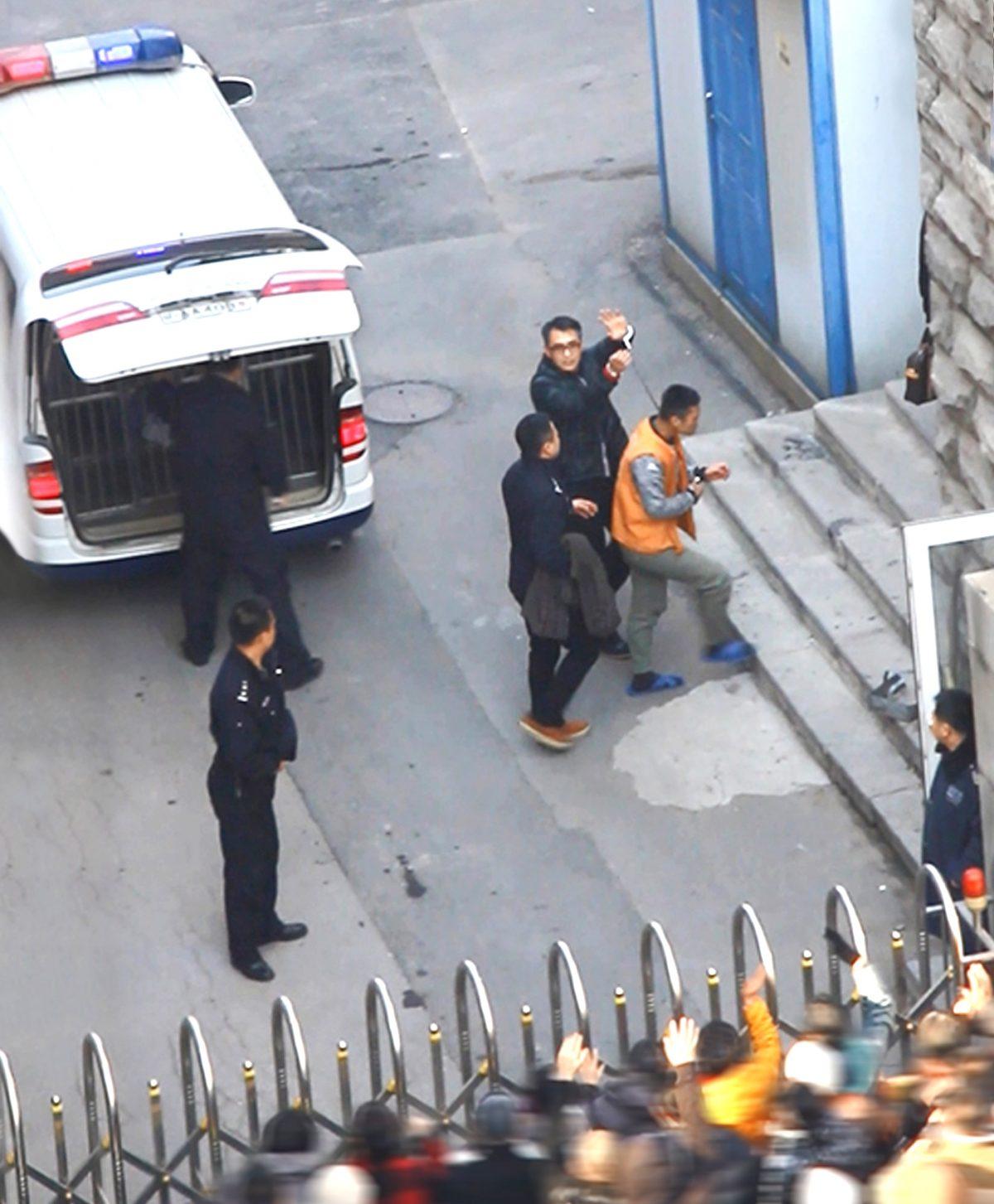
Twisting the Facts
Yu said the public couldn’t know what actually happened at this fourth trial, on April 22, 2015, because China Central TV (CCTV) edited and manipulated the video, and also defamed his lawyer, Wang Yu.A female Falun Gong practitioner named Li Dongxu was tried together with Yu. Guards harshly knocked her down and pressed her into her seat when she tried to speak about her case. Li’s mother couldn’t endure seeing her daughter treated that way, and stood up to protest.
With the police guards apparently about to use force against the 84-year-old woman, Yu’s lawyer Wang Yu tried to intercede. After angrily condemning the police for their actions, Wang was dragged from the courtroom.
However, CCTV’s broadcasts told a different story. After careful re-editing and manipulating of the video of the trial, the CCTV was able to produce several “news” pieces showing Wang repeatedly leaving her seat to create “trouble” and make a scene in the court.
“People can hardly imagine how bad CCTV is,” Yu said. “What saddens me is, although I have only stayed in Thailand and the United States for a very short period of time, I have seen CCTV programs a number of times in different places. However, I’ve never seen any U.S. or Thailand TV programs in China.
“I think President Trump is very correct to insist on ‘reciprocity’ in the trade talks. I hope the same principle can be applied to the media sectors, too.”
